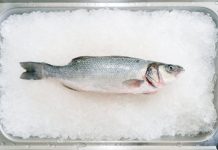Welcoming a new puppy into your home is a joyous occasion filled with playful antics and heartwarming moments. However, it can also come with its challenges, especially when your furry friend has a sensitive stomach. As a loving pet parent, you want nothing but the best for your puppy, ensuring they grow strong and healthy. Choosing the right food is a crucial step in this journey, but with countless options on the market, it can feel overwhelming. This year, we’ve researched and compiled a guide to the best puppy foods specifically designed for sensitive stomachs. Our aim is to help you navigate through the myriad of choices with ease and confidence, ensuring your pup receives the nourishment they need while keeping their tummy happy and healthy. Join us as we explore the top recommendations that promise not only to soothe digestive woes but also to support your puppy’s overall well-being.
Understanding Puppy Nutrition for Sensitive Stomachs
Understanding your puppy’s nutritional needs is essential, especially when dealing with a sensitive stomach. Puppies, like humans, have unique dietary requirements that can vary greatly. A sensitive stomach can be triggered by various factors, including food allergies, intolerances, or even stress. To cater to these delicate digestive systems, it’s important to select foods that are gentle yet nourishing.
When choosing the right diet for your puppy, look for options that include limited ingredients to minimize potential allergens. Foods that are rich in high-quality proteins like lamb or turkey and incorporate easily digestible carbohydrates such as sweet potatoes or rice are ideal. Additionally, consider options fortified with probiotics and prebiotics to support gut health. Here’s what to focus on:
- Grain-Free Options: Some puppies may benefit from diets free of common grains.
- Novel Proteins: Introduce proteins your puppy hasn’t consumed before to avoid triggering allergies.
- Natural Ingredients: Avoid artificial additives, colors, and preservatives.
By taking these considerations into account, you’ll be better equipped to choose the right food that keeps your furry friend healthy and happy.
Top Ingredients to Look For in Gentle Puppy Foods
When choosing food for your puppy with a sensitive stomach, it’s crucial to pay attention to the ingredients that can offer comfort and nourishment. Prebiotics and probiotics are essential as they help balance the gut flora, promoting healthy digestion. Look for foods that contain real meat as the first ingredient, such as chicken or lamb, which are gentle on the tummy and provide necessary protein for growth.
- Oatmeal and Brown Rice: These grains are excellent sources of carbohydrates that are easy to digest and provide energy without causing irritation.
- Sweet Potatoes: A great source of fiber and vitamins, they are gentle on the digestive system while offering a sweet taste that puppies love.
- Pumpkin: Known for its soothing effects on upset stomachs, pumpkin is a fantastic addition that aids digestion and maintains regularity.
Additionally, ensure the food is free from common allergens such as soy, corn, and artificial additives, which can trigger sensitivities. By focusing on these ingredients, you’ll help ensure your furry friend has a happy, healthy tummy and a wagging tail.

Vet-Recommended Puppy Foods for Digestive Health
Choosing the right food for your puppy with a sensitive stomach is crucial for their well-being and happiness. Veterinarians often recommend specific foods that are gentle on the digestive system while providing all the essential nutrients for growth. Here are some key ingredients and features to look for in puppy foods designed for digestive health:
- Limited Ingredients: Opt for foods with a limited number of ingredients to reduce the risk of triggering allergies or sensitivities.
- High-Quality Proteins: Look for easily digestible proteins like chicken, lamb, or fish as the primary ingredient.
- Prebiotics and Probiotics: These help maintain a healthy gut flora and support digestion.
- Grain-Free Options: For some puppies, grains can be hard to digest, so grain-free formulas might be beneficial.
- Omega Fatty Acids: Essential for reducing inflammation and promoting a healthy coat and skin.
Incorporating these elements into your puppy’s diet can significantly improve their digestive health, ensuring they grow up strong and vibrant. Always consult your veterinarian before making any significant changes to your puppy’s diet to ensure it meets their specific needs.

Tips for Transitioning Your Puppy to a New Diet
Switching your puppy’s diet can be a delicate process, especially for those with sensitive stomachs. To ensure a smooth transition, it’s important to introduce new foods gradually. Start by mixing a small amount of the new food with their current diet, increasing the proportion over a week. This gradual change helps your puppy’s digestive system adapt without causing discomfort.
- Monitor your puppy’s response: Keep an eye on their stool and overall behavior. Any signs of discomfort or digestive upset should prompt a return to the previous mix ratio.
- Maintain consistency: Feed your puppy at the same times each day to establish a routine. This helps in regulating their digestive system.
- Hydration is key: Ensure your puppy has access to fresh water at all times, as proper hydration aids digestion and nutrient absorption.
Patience and attentiveness during this transition period will help your puppy adjust comfortably to their new diet, setting them up for a lifetime of health and happiness.
















